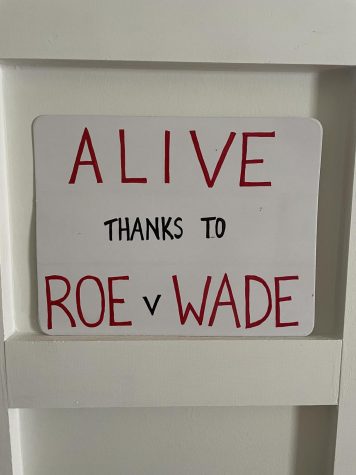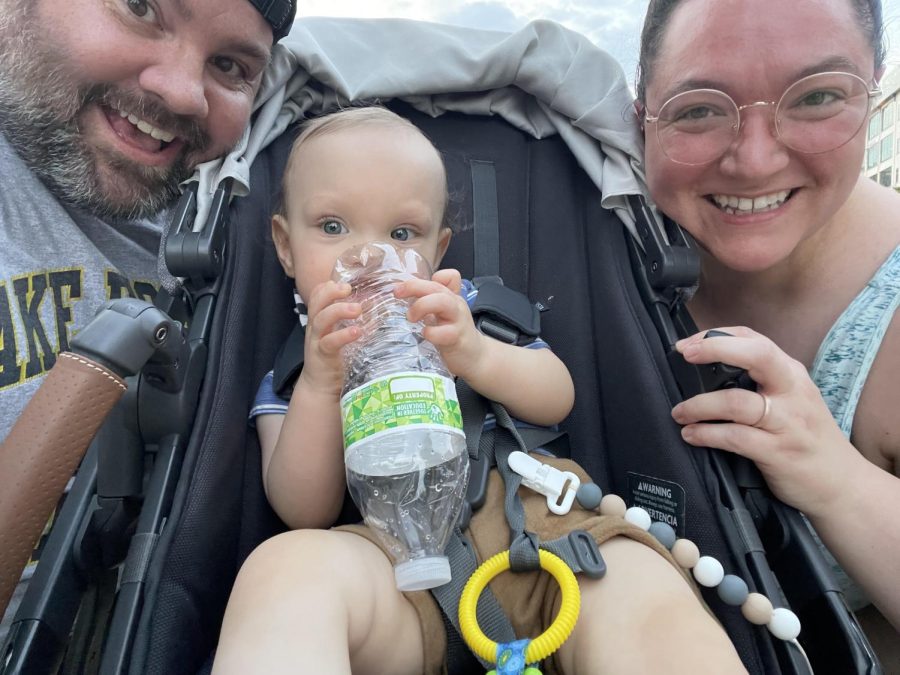Reece, Oliver and Swortzel attend a protest against the overturn of Roe v. Wade.
Protest
September 26, 2022
Since Swortzel was able to make an autonomous decision regarding her reproductive care, she worried when the Supreme Court overturned Roe v. Wade and Planned Parenthood v. Casey in June.
“When Roe v. Wade was overturned, I knew the implications it would have for people who wanted abortion access just to have abortion access, but also [I knew the implications] for people like me who had to make an unthinkable medical decision,” Swortzel said. “Now, that decision may be taken completely out of their hands.”
Associate Professor of Law at Wake Forest University Meghan Boone, whose expertise lies in reproductive rights, explained why Swortzel is justified in being concerned about how the Dobbs v. Jackson Women’s Health Organization decision impacts medical decision-making while pregnant.
“Roe explicitly protected the right to abortion, but underpinning that right was the idea that pregnant people had the right to make medical decisions about their own bodies, even if those decisions interfered with the health or life of the fetus they carry, at least as long as the fetus was not yet viable,” Boone said.
In the case in New Jersey, Roe v. Wade did not protect VM because the fetus was far past the point of viability.
“In a world without Roe, pregnant people like Lydia could be forced into medical treatment or decisions even with pre-viability fetuses, like her twins were when she went into premature labor,” Boone said.

In addition to abortion access, Swortzel wants people to consider how abortion rights affect those who do want children.
“I want people, especially when they’re thinking about Roe v. Wade, to think about how it affects more than just people that want to go out and have an abortion because they don’t want a child,” Swortzel said. “[Some people] didn’t want to have an abortion. They didn’t want to have a late term loss. They didn’t want to make a decision like this. But they have to — in order to have a life on their own, to be able to give another baby life or in order for a child not to suffer, they have to.”
Swortzel took her concerns and turned them into activism. She was among the 1,000 people that gathered in downtown Winston-Salem to protest the reversal of Roe v. Wade.
The protest was on July 3. The next day, many Americans celebrated Independence Day. That day, however, protesters took to the streets to express that they felt one of their freedoms had been taken away.
Almost every protester brought a sign along with them. Some of the poster slogans included:
“WOMEN’S RIGHTS ARE HUMAN RIGHTS”
“THEOCRACY IS UNAMERICAN”
“KEEP YOUR ROSARIES OFF MY OVARIES”
The Swortzels marched with Oliver in a stroller. They also brought a sign, hanging it on the back of the stroller. It read: “Alive thanks to Roe v. Wade”.
